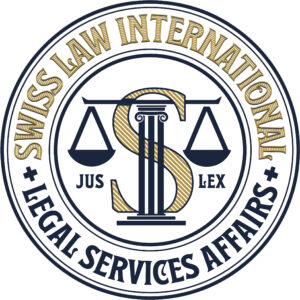Relocating from Canada to Switzerland
Both EU and non-EU nationals must complete certain formalities when arriving in Switzerland. This includes Canadians, who find Switzerland an attractive destination. To relocate from Canada to Switzerland, there are steps to follow, but also numerous benefits.
For assistance with Canadian immigration to Switzerland, our immigration experts can guide you through a smooth process.
Request Case Evaluation
Visa Exemptions for Canadians Relocating to Switzerland
Canadians and Americans can visit Switzerland without a visa for short stays up to 90 days. Beyond that, standard visa procedures apply. Our team can help with the necessary paperwork for short visits and obtaining a residence permit.
Residency Permits in Switzerland
Obtaining a residency permit in Switzerland involves applying for specific visas:
- Study Visa: For students at recognized institutions.
- Work Visa: For individuals with local employment. Non-European citizens face a more complex process and must secure a job before moving. Successful applicants receive a work visa with a temporary residency permit, also known as a B Permit.
Family reunification visas are available for Canadians with family in Switzerland, although EU/EFTA citizens have an easier process. We can guide you through both EU/EFTA and non-EU national requirements for Swiss residency permits.
Youth Mobility Program
The Youth Mobility Program allows Canadians aged 18-35 to work in Switzerland. Requirements include:
- Canadian citizenship
- Valid passport
- Permanent address in Canada
- Employment or internship offer related to your field of study or expertise
Participants can join the program twice for up to 18 months each time, with a maximum of 12 months per visit. Contact us for detailed guidance on relocating via the Youth Mobility Program.
Permanent Residence and Citizenship
After five years of continuous residency, US and Canadian citizens can apply for a C Permit in Switzerland. For information on obtaining Swiss citizenship, reach out to our experts.
A new law effective January 1, 2018, reduced the residency requirement for citizenship from 12 to 10 years. Other changes include counting only the years between ages 10 and 18 towards childhood residency and recognizing half a year of refugee or asylum seeker status towards citizenship. Only C permit holders’ residency years count towards citizenship applications.
Retiring in Switzerland
Non-Swiss citizens can apply for a retirement visa if self-sufficient. Requirements for non-EU nationals include being over 55, financial independence, spending most of the year in Switzerland, and demonstrating personal ties to the country. Our Legal Counsel can assist with retirement visa applications.
Preparing Documents for the Move
Required documents for moving to Switzerland vary by immigration purpose and visa type. These may include:
- Valid passport
- Work contract or employment offer
- Proof of housing and insurance
- Proof of family residency for reunification
Our experts can help prepare these documents and provide additional expat services.
Criminal Records and Immigration
A criminal record may impact immigration to Switzerland. Full disclosure during the application process is necessary. Our Legal Advisors can guide you on presenting a clean criminal record.
Health Insurance Requirements
Switzerland requires all residents, including foreigners, to have private health insurance. Registration in the healthcare system is possible after arriving in Switzerland and applying for residency or registering with local authorities. Health insurance must be obtained within 90 days of arrival. We can advise on health insurance plans and exceptions for certain groups.
Canada-Switzerland Economic Ties
Switzerland is a significant business hub, making it a popular destination for Canadians. As of November 2023, Switzerland’s imports from Canada totaled 30.1 billion USD, with exports to Canada reaching 4.4 billion CHF.
For support with moving from Canada to Switzerland and obtaining a residence permit, please contact us.


